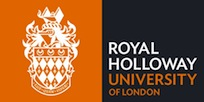Speaker
Prof.
Katherine Freese
Description
Cosmology has just had a major discovery: gravity waves from the early Universe. The Cosmic Microwave Background polarization experiment BICEP2 has announced detection of B-modes, which can be explained as the gravitational wave signature of inflation. I will discuss the significance of these ground-breaking results for cosmology. This discovery, if confirmed in future data sets, is a “smoking gun” for inflation. Further, when combined with data from the Planck satellite, thousands of inflation models have now been ruled out. Remaining simple models are few, and include natural inflation and quadratic potentials. Natural inflation uses “axions” as the inflaton, where the term “axion” is used loosely for a field with a flat potential as a result of a shift symmetry. That inflation could be so dramatically confirmed so quickly as a theory of the earliest Universe comes as a great surprise, and now the details of the inflaton even stand to be tested. A second major direction for the near future of cosmology is the identification of the dark matter of the Universe. The approach is three-pronged: the hunt for new physics at the Large Hadron Collider; underground laboratories searching for astrophysical WIMPs; and indirect detection of dark matter annihilation products. The excitement in the community is palpable: the searches are unearthing unexplained signals that may herald dark matter particles as the next big discovery in cosmology.




